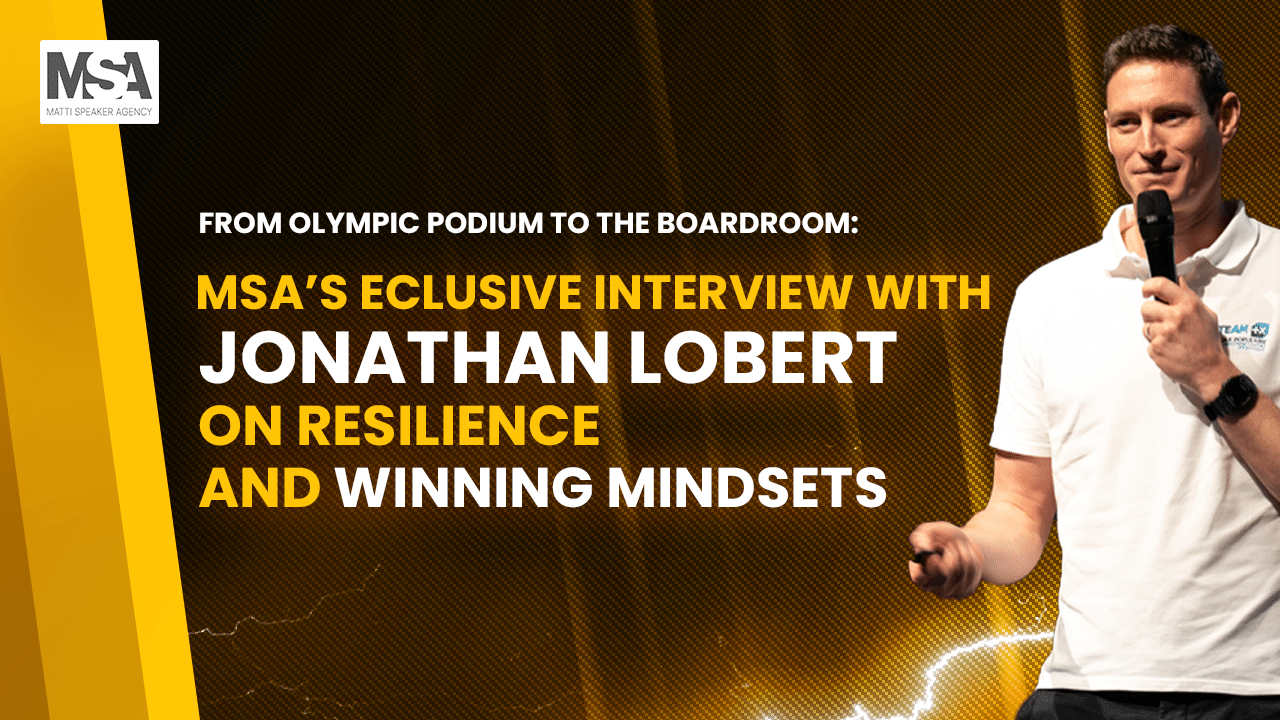Excited to feature an exclusive interview with, an inspiring leadership specialist, author, and reinvention mentor, with Matti Speaker Agency.
Jillian’s journey of turning personal challenges into powerful lessons has made her a global voice for leaders who don’t just want to survive change but truly thrive in it.
The Cost of an Outdated Workplace OS—And the Practical Upgrade
We asked Jillian: in a market changing this fast, what’s the cost of running a 20th-century “operating system” for work—and how does The Ten Permissions offer a practical upgrade?
“We pay for an outdated workplace OS with brittleness: slow decisions, over-planning, talent attrition, and an obsession with certainty that no longer exists,” Jillian explains. “We end up managing for control instead of outcomes and can often get caught in endless process loops, stagnant results and dissatisfied team members. Sound familiar?”
“The Ten Permissions is a practical upgrade because it moves authority from rules to responsibility, freeing up your teams’ agency and creating more room for agility and innovation. Here’s how I see some of my permissions playing out in that context:
- Be Wilful: Clarify intent and take a stand. Leaders must name the non-negotiables (values, red lines) so teams can act without waiting.
- Think Small: Replace big-bang plans with small bets and tight feedback loops. Decision quality rises when cycles shorten.
- Travel Light: Prune legacy rituals, decks, and approvals that add weight but not value.
- Forget About the Future: Plan for adaptability, not prediction—capacity beats certainty every time. Think preparedness over predictability.
The result is faster learning, clearer priorities, and teams who use judgment instead of seeking permission – which is what both team members and leaders want.”
What a “Permission-Rich” Culture Looks Like in Practice
So, what does this culture feel like, and what business outcomes does it drive?
“It feels like the oxygen that drives the best individual and team performance,” says Jillian. “People know what matters, where they have latitude, and how to course-correct. They’re engaged and relaxed at the same time, which is where top performance lives and breathes.”
Here’s how she sees her permissions creating this environment:
- Experiment (fund micro-bets): Every team can test, measure, and kill fast.
- Go Astray (sanction smart wandering): Exploration time and cross-functional “loops” feed the roadmap.
- Look for Trouble (surface reality early): We reward the person who spots the crack, not the one who hides it.
- Feel Your Way (use data + judgment): We blend dashboards with on-the-ground sensemaking.
“What moves?” Jillian asks. “Decision velocity, time-to-value, innovation hit rate, retention of high performers, and psychological safety. The bottom line is that people stay where they’re trusted to do real work that matters. It all starts with permission.”
AI, Autonomy, and Control: Finding the Right Balance
With AI accelerating everything, leaders face a new challenge: how to rebalance control and autonomy so people act with ownership without creating chaos.
“I envision it as creating wide lanes with clear edges, and my permissions are central to that process,” Jillian notes.
- Be Wilful: State the intent, values, and unacceptable harms. That’s your guardrail – be clear and intentional about creating it.
- Feel Your Way: Train teams to combine model output with context, ethics, and customer sense.
- Use Travel Light: Strip out processes that AI has made redundant—then reinvest that time in creativity and customer proximity. That’s the permission AI is giving us.
“Autonomy doesn’t mean anarchy. It means adults trusted to act inside clear boundaries—and to learn in public. Younger team members are craving these kinds of environments where autonomy and learning are paramount – it’s time leaders accept that. And accept that creating these types of environments doesn’t have to cost performance or accountability – precisely the opposite.”
Your 90-Day Plan to Raise Adaptive Capacity
For leaders ready to take action, we asked Jillian for a practical starting point: if you had 90 days to raise your organization’s adaptive capacity, what are the first five moves—and what could leaders pilot next week?
“I love this question!” she says. “Because I like to think in short time frames, it focuses both intention and attention. Here’s what I’d do in the first 90 days:”
- Name the bet (Be Wilful): What are we actually trying to learn or achieve this quarter?
- Kill the drag (Travel Light): Remove two low-value meetings and one approval step per team.
- Fund micro-experiments (Think Small / Experiment): 10 small bets with explicit kill criteria.
- Make reality visible (Look for Trouble): A stand-up where red flags are rewarded, not punished.
- Close the loop (Forget About the Future): Weekly learning reviews—what did we learn, what changes Monday?
“Now here’s what you could pilot next week,” she adds.
- A 2-week “permission sprint”: each team runs one tiny experiment, one process prune, and shares one uncomfortable truth.
- Leader behaviours: ask “What’s the smallest next step?”; praise learning speed; model “I don’t know—let’s find out.”
Jillian’s final reframe is one every leader should hear: “Creating adaptive, permission-rich cultures isn’t about being reckless and indulgent. It’s about building the adaptive muscles—choice, judgment, and learning—that are going to keep you relevant in real time. That will set you up to be industry leaders and chosen employers. And isn’t that what everybody wants?”
To bring transformative speakers like Jillian Reilly to your next event, contact Matti Speaker Agency today and start building the future of your organization.



